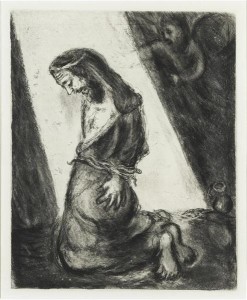Habakkuk 1:1-4, 2:1-4
This text is used for the Lectionary Year C on October 30th, 2016.
 The book of Habakkuk often takes a minor role in our reading of the Minor Prophets. If referenced at all, it usually focuses on the famous refrain found at the end of the fourth chapter. A refrain that speaks of resting in God’s will no matter what comes. But, the impulse to jump right to those verses does a disservice to what transpires before. Similarly, there is a temptation to jump past the hard points in life. We want to jump past grief to comfort; jump past pain to healing; jump past doubt to assurance. But many times the hard times are an essential part of the overall process. This reading from Habakkuk gives us a chance to practice this discipline.
The book of Habakkuk often takes a minor role in our reading of the Minor Prophets. If referenced at all, it usually focuses on the famous refrain found at the end of the fourth chapter. A refrain that speaks of resting in God’s will no matter what comes. But, the impulse to jump right to those verses does a disservice to what transpires before. Similarly, there is a temptation to jump past the hard points in life. We want to jump past grief to comfort; jump past pain to healing; jump past doubt to assurance. But many times the hard times are an essential part of the overall process. This reading from Habakkuk gives us a chance to practice this discipline.
The Prophet starts out his account with a question and lament. “How long,” he asks “should I cry out for help?” The prophet is in distress, and he is fed up with it. For Habakkuk, it appears that God has not reached out to save him. God has not taken a look at his trouble. How do we help someone who is questioning God? What do we do when that person is us? Often, these questions don’t find much space in our churches. But the prophets and the psalms don’t seem as afraid of them as we can be. Commentators note that the beginning of Habakkuk’s claims seem vague, and perhaps that is for the best. We cannot write them off as a special occurrence, a one-time thing. Habakkuk speaks from a place that we all come to at some time or another. How can we speak about it?



